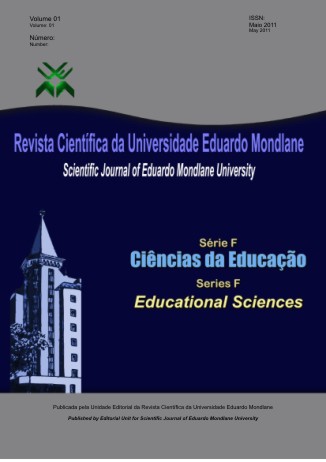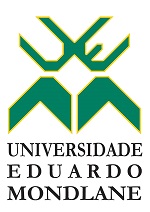Desenvolvimento profissional para a docência online: análise de um programa de formação de docentes na Universidade Eduardo Mondlane
Keywords:
Desenvolvimento profissional, ensino online, necessidades do professorAbstract
The transition to online education requires lecturers to have specific skills to practice teaching. The practice has shown that most lecturers are not prepared to teach effectively and affectively, which demands training in the perspective of professional development. This article presents the results of a study carried out at Eduardo Mondlane University that aimed to analyze the lecturers' perceptions regarding their professional development needs for online teaching as well as the impact of training on improving their competencies. The literature is incipient as to the lecturers' perceptions about their professional development needs for the design of training programs, in addition often the contents of the programs are replicated from other contexts and do not fit the teaching practices. This is a qualitative and exploratory study, specifically a case study, and participated sixteen lecturers. The study showed that professional development programs should be designed from the diagnosis of the needs of lecturers in online teaching, and identified them as online moderation, development of teaching materials and use of technologies. The training had a positive impact because the lecturers learned the strategies of online moderation, motivation and feedback, the aspects to be taken in the development of teaching materials and the correct use of technologies. In contrast to the literature, the lecturers pointed out the pedagogical and management roles as being of lecturers and should be considered in the training programs.
References
BARDIN, L. Análise de conteúdo. Lisboa: Edições 70, 2011. 281p.
BELLONI, M. Educação a Distância. 2ª ed. Campinas: Autores associados, 2001. 115p.
BERGE, Z. The role of the on-line instructor/facilitator. 1995. Disponível em: http://cordonline.net/mntutorial2/ module_2/Reading%202-%20instructor %20role.pdf. Acesso em: 29 de Julho de 2014.
FULLAN, M. Change Forces: the sequel. Philadelphia: Falmer Press, 1999. 90p.
GIL, A. Métodos e técnicas de pesquisa social. São Paulo: Atlas, 2008. 220p.
GONZÁLEZ-SANMAMED, M.; MUÑOZ-CARRIL, P.; SANGRÀ, A. Level of proficiency and professional development needs in peripheral online teaching roles. Athabasca University, The International Review of Research in Open and Distributed Learning, v. 12, n. 6, p. 162-187, 2014. Disponível em: http://www.irrodl.org/index.php/irrodl/article/view/1771. Acesso em: Janeiro de 2015.
GOODYEAR, P. et al. Competences for Online Teaching. Educational Technology, Research and Development, v. 49, n. 1, p. 65-72, 2001. Disponível em: http://www.academia.edu/313849/Competences_for_online_teaching_A_special_report. Acesso em: 19 de Outubro de 2014.
GUSKEY, T. Professional Development and Teacher Change. Teachers and Teaching: theory and practice, v. 8, n. 3/4, p. 381-391, 2002. Disponível em: http://physics.gmu.edu/~hgeller/TeacherWorkshop/Guskey2002.pdf. Acesso em: 30 de Maio de 2012.
KENSKI, V. Tecnologias e ensino presencial e a distância. Campinas: Papirus, 2008. 157p.
LYNCH, M. The on-line educator: a guide to creating the virtual classroom. London: Routledge Falmer, 2002. 192p.
Masetto M. Competência pedagógica do professor universitário. São Paulo: Editorial Summus, 2003. 194p.
MCQUIGGAN, C. The Role of Faculty Development in Online Teaching’s. Potential to Question Teaching Beliefs and Assumptions. Online Journal of Distance Learning Administration, v. 10, n. 3, 2007. Disponível em: http://www.westga.edu/~distance/ojdla/fall103/mcquiggan103.htm. Acesso em: Outubro de 2014.
MOÇAMBIQUE. MINED. Estratégia da Educação à Distância, 2014-2018. INED, 2013. 67p.
PALLOFF, R. e PRATT, K. Making the transition: Helping teachers to teach online. In EDUCASE: THINKING IT THROUGH, Nashville: Tennessee, 2000. Disponível em: http://net.educause.edu /ir/library/pdf/EDU0006.pdf. Acesso em: 28 de Novembro de 2014.
QUINTAS-MENDES, A. e CRATO, A. Formação de e-formadores: alguns princípios pedagógicos. Discursos, Série Perspectivas em Educação, n. 2, p. 171-176, 2004. Disponível em: http://repositorioaberto.univ-ab.pt/handle /10400.2/164. Acesso em: 22 de Abril de 2014.
ROSÁRIO, L.; MOREIRA, A. Competências do professor para o ensino online: análise de um curso de capacitação de docentes em EaD. Revista Online Indagatio Didactica, vol. 7, n. 1, p. 115-131, 2015.
SALMON, G. E-Moderating: the key to teaching and learning online. London: Kogan Page, 2000. 180p.
SANTOS. E. Ambientes virtuais de aprendizagem: por autorias livre, plurais e gratuitas. Revista FAEBA, v. 12, n. 18, p. 1-20, 2003. Disponível em: http://www.comunidadesvirtuais.pro.br/hipertexto/home/ava.pdf. Acesso em: 22 de Agosto de 2013.
TAVARES, K. O Professor virtual: reflexões sobre seu papel e sua formação. 2000. Disponível em: http://www.lingnet. pro.br/papers/eadprof.htm. Acesso em: 20 Agosto de 2012.
YIN, R. Estudo de caso: planejamento e métodos. 2. ed. Porto Alegre: Bookman, 2001.
Downloads
Published
How to Cite
Issue
Section
License
Copyright (c) 2020 Lina Sara C. do Rosário

This work is licensed under a Creative Commons Attribution-ShareAlike 4.0 International License.






